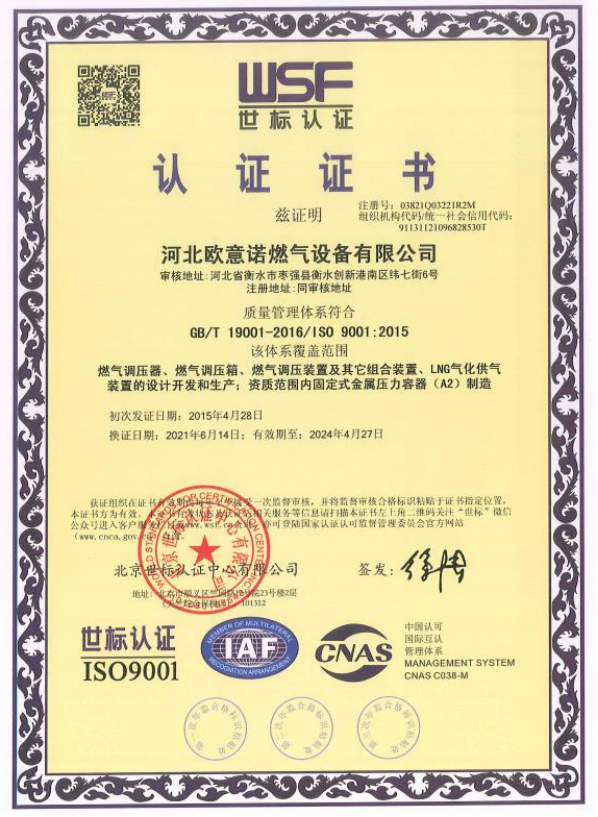
Jul . 11, 2024 01:49
Back to list
Pressure pipeline a critical component of industrial infrastructure for fluid transport.
Pressure pipe, also known as pressure tube, is a type of piping or tubing designed to handle high pressure fluids or gases. These pipes are typically used in industrial applications where the transportation of liquids or gases at high pressures is necessary. Pressure pipes are made from a variety of materials, including steel, copper, and plastic, and come in various sizes and shapes to suit different needs.
One of the key features of pressure pipes is their ability to withstand high pressures without leaking or bursting. This is essential in industries such as oil and gas, chemical processing, and power generation, where the failure of a pressure pipe could result in serious consequences, including environmental damage, injury, or even loss of life. To ensure the safety and reliability of pressure pipes, they must be designed, manufactured, installed, and maintained according to industry standards and regulations.
Pressure pipes are commonly used in a wide range of applications, including water distribution, sewage systems, heating and cooling systems, and irrigation. In water distribution systems, pressure pipes transport clean water from treatment plants to homes, businesses, and industrial facilities. In sewage systems, pressure pipes carry wastewater from homes and businesses to treatment plants for processing. In heating and cooling systems, pressure pipes circulate hot or cold water to heat or cool buildings. In irrigation systems, pressure pipes deliver water to crops to ensure proper growth and yield

pressure pipe. The design and material of pressure pipes vary depending on the specific application and the type of fluid or gas being transported. For example, in high-temperature applications, pressure pipes made from steel or copper may be used to handle the heat. In corrosive environments, pressure pipes made from plastic or coated steel may be preferred to prevent degradation. In underground applications, pressure pipes may be coated or wrapped to protect against soil corrosion. In addition to transporting fluids and gases, pressure pipes can also be used to regulate pressure within a system. Pressure regulators, valves, and fittings can be installed on pressure pipes to control the flow and pressure of fluids or gases. By adjusting these components, operators can ensure that the pressure within the system remains within safe limits and that the system operates efficiently. Overall, pressure pipes play a crucial role in many industrial processes and applications, ensuring the safe and reliable transport of fluids and gases at high pressures. By understanding the design, material, and operation of pressure pipes, industry professionals can effectively maintain these critical components and prevent accidents or failures that could have serious consequences.

pressure pipe. The design and material of pressure pipes vary depending on the specific application and the type of fluid or gas being transported. For example, in high-temperature applications, pressure pipes made from steel or copper may be used to handle the heat. In corrosive environments, pressure pipes made from plastic or coated steel may be preferred to prevent degradation. In underground applications, pressure pipes may be coated or wrapped to protect against soil corrosion. In addition to transporting fluids and gases, pressure pipes can also be used to regulate pressure within a system. Pressure regulators, valves, and fittings can be installed on pressure pipes to control the flow and pressure of fluids or gases. By adjusting these components, operators can ensure that the pressure within the system remains within safe limits and that the system operates efficiently. Overall, pressure pipes play a crucial role in many industrial processes and applications, ensuring the safe and reliable transport of fluids and gases at high pressures. By understanding the design, material, and operation of pressure pipes, industry professionals can effectively maintain these critical components and prevent accidents or failures that could have serious consequences.
Latest news
-
Safety Valve Spring-Loaded Design Overpressure ProtectionNewsJul.25,2025
-
Precision Voltage Regulator AC5 Accuracy Grade PerformanceNewsJul.25,2025
-
Natural Gas Pressure Regulating Skid Industrial Pipeline ApplicationsNewsJul.25,2025
-
Natural Gas Filter Stainless Steel Mesh Element DesignNewsJul.25,2025
-
Gas Pressure Regulator Valve Direct-Acting Spring-Loaded DesignNewsJul.25,2025
-
Decompression Equipment Multi-Stage Heat Exchange System DesignNewsJul.25,2025

